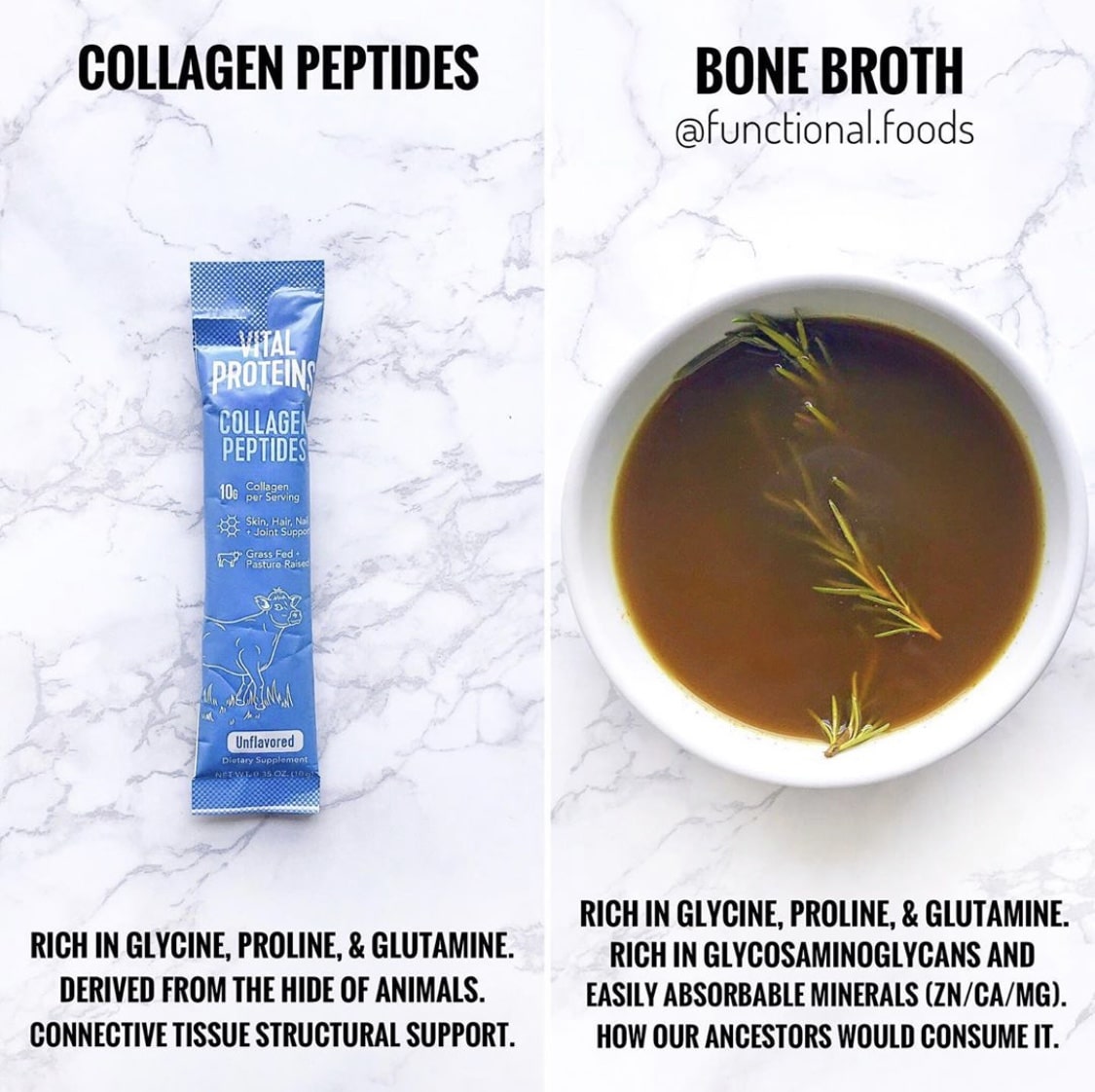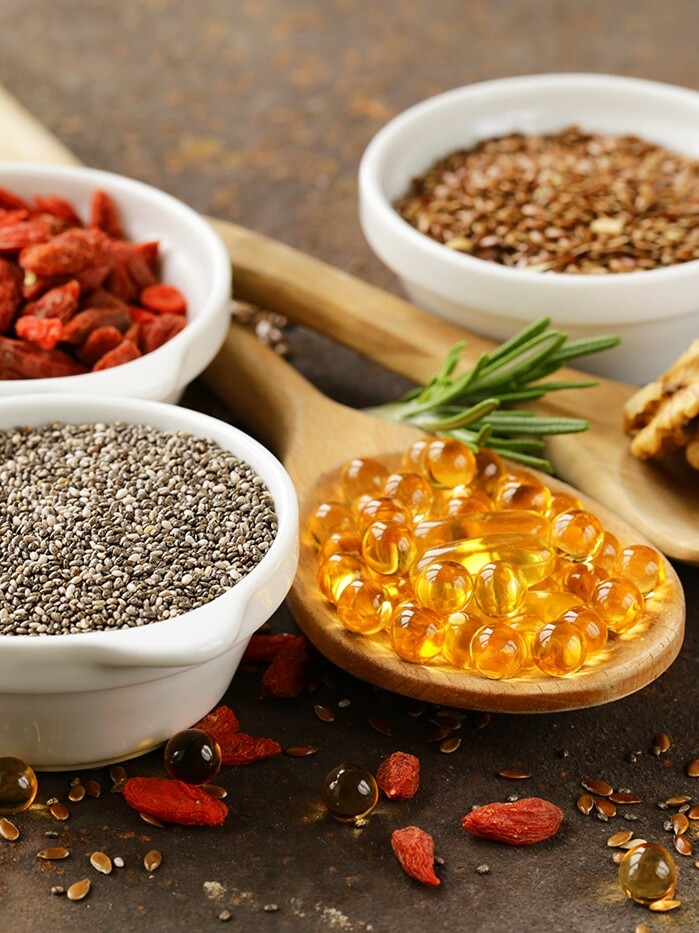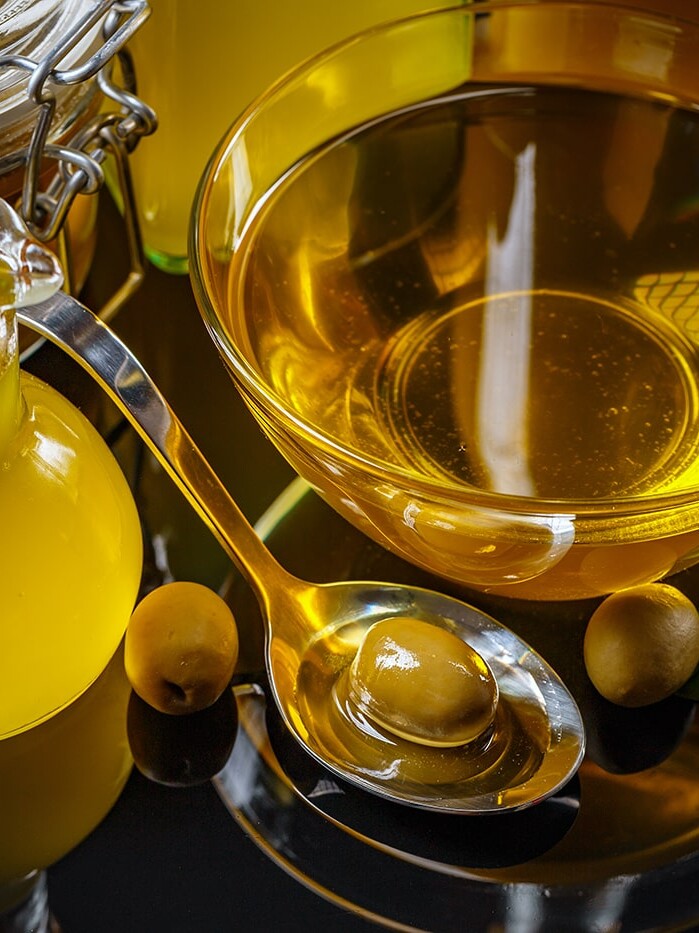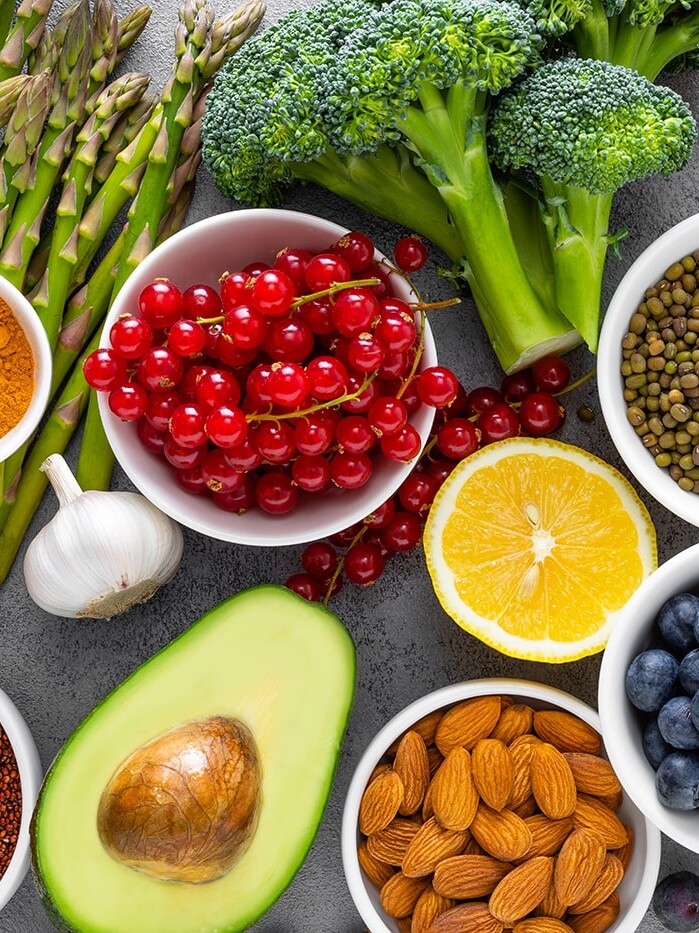Collagen is all the rage these days. Whether it’s for skin health, strong hair and nails, or supporting gut health, everyone is taking collagen.
Collagen is our primary structural protein derived from fibroblasts that makes up our connective tissue (joints, tendons, ligaments, skin). There are many different types of collagen. Our body makes collagen and utilizes vitamin C as a cofactor to do so. Collagen is susceptible to degradation when in a pro-oxidative environment from the excessive generation of free radicals, which in turn creates an inflammatory response.
We can also get collagen by consuming bonebroth which is rich in glycosaminoglycan’s such as glucosamine, hyaluronic acid, and chondroitin sulfate, as well as amino acids such as glycine, glutamine, and proline. Bone broth is also a great source of easily absorbable minerals such as zinc, calcium, magnesium, and phosphorous. Many of these minerals are essential for our hormones and the production of calming neurotransmitters.
I am more of a fan of bone broth because of the abundance of nutrients it provides in addition to the collagen peptides. It is also how our ancestors would have consumed collagen from a nose to snout approach and cooking down the animal carcass.
Bone broth was used by ancient cultures for immune support due to its rich bioavailability of nutrients. Chicken feet are even richer in glycosaminoglycans since they are made up of more of that cartilaginous connective tissue.
Proline, along with glycine, makes up more than half of the total amino acids in collagen. Glycine is also a constituent of glutathione, our master antioxidant in the body, and an essential player in detoxification pathways.
Glutamine is regenerative fuel for the enterocytes than line our gastrointestinal mucosal lining. Zinc carnosine, bovine colostrum, glycine, and aloe also have been elucidated in the literature to support the regeneration of the gut mucosa.
Bone broth is commonly used as a tool to modulate the permeability of a “leaky gut” via restoration of the GAG layer and intestinal tight junctions.
Most collagen peptides on the market are derived from the hide of animals. If you have MCAS or histamine issues, collagen may not be your friend! You can email your favorite brand and ask where they derive their collagen peptides.
In respect to bone broth, there is also the issue with heavy metals. Like humans, animals store heavy metals they are exposed to in their bones. Therefore, there is the potential for lead exposure in the context of excessive consumption. This is why sourcing matters! Opt for organic, grass-fed/finished pasture raised animals. You can also infuse cilantro and rosemary into your bone broth for their chelation-like benefits and high antioxidant profile.




